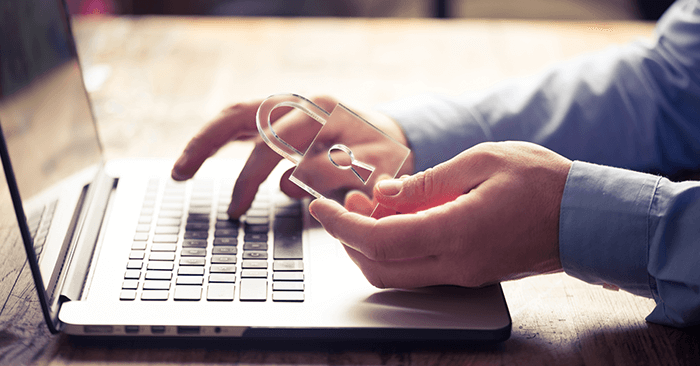
Do you have a social media account?
When’s the last time you updated your security settings on all your social media accounts?
How careful are you when posting personal content on your Facebook account?
If you have even just one active social media account, you may be liable to security threats. What you can do is be aware of them and take the necessary measures of precautions.
Settle in, because I am about to share with you three most frequent social media security dangers and some effective ways to protect your online and offline identity.
Let’s get right into it…
1. Social media profile hacking
This is one of the most frequent forms of hacking.
You’ve probably seen it yourself countless times – one of your FB friends posts weird content on their personal profile or sends you a very random message. A few days later, you see a public post of them announcing their profile has been hacked.
This is just an example of the many out there:

What makes your profile liable to hacking?
First of all, let me ask you a few questions:
- How strong is your password?
- When’s the last time you changed your password?
- Do you have the same password for all your social media accounts?
Check all your accounts and increase your security by choosing strong passwords (most social networks have a tool to make it easy for you).
Also, make sure all your accounts have different passwords.
Tip: One of the most common targets of hackers to infiltrate their virus codes in are shortened links created with bit.ly.
[ctt template=”7″ link=”feoEm” via=”no” ]One of the most common targets of hackers to infiltrate their virus codes in are shortened links created with bit.ly.[/ctt]
So be careful when you click on a post – read the title several times, and don’t click on the so-called “click-bait” article titles. They’re either fake news, disappointing news (they set high expectations and don’t deliver) OR they’re spam/scam/threat.
How can you protect your profile?
Check shortened links before clicking on them, especially if they seem suspicious to you.
There are two easy ways to check bit.ly links:
- Use this free website malware and security scanner called Sucuri SiteCheck
- Check links manually by hovering the pointer over a link without clicking on it. You will be able to see the URL address in the browser, at the bottom of the screen.
A good rule of thumb when it comes to your online security is: if a link seems suspicious, don’t click on it.
2. Recklessly sharing your personal information
Let’s say your PC is protected with the latest antivirus. You’re confident no hacker can have access to your personal or business information.
Spoiler alert: Most of the time, hackers don’t even have to hack your PC. Users voluntarily give out personal information without second guessing the motives behind certain personal questions.
Yes, that sounds unbelievable! Unfortunately, it’s true.
How can you protect your personal information?
Be reluctant when you’re asked to disclose personal information such as the location of your workplace, personal address, date of birth, travel plans or your bank account data.
This is all precious information for hackers.
Keep your travel plans and location private!
You would be surprised how many house burglaries occur every year due to users posting their vacation plans on social media.
Burglars are on social media as well. Just keep that in mind next time you’re tempted to post photos and updates of your latest vacation outing.
Tip: When it comes to revealing your personal information on social media or other websites, sometimes it’s best to be a bit more suspicious than you’d think necessary.
3. Identity thefts
The Australian Criminal Intelligence Commission reports that identity theft continues to be one of the most common crimes in Australia. The economic impact of identity crime is estimated to exceed $2.2 billion.
How can hackers get access to your personal information?
From your social media profile. Nowadays, all profiles include some or all information such as:
- date of birth
- workplace
- home address
- email address
- phone number
One of hackers most-used identity theft technique is the “Forgot Password” link.
They will try to recover the information using the email or some personal information their target user posted on social media.
It’s fairly simple, and unfortunately, most of the times extremely efficient.
For example, let’s say you posted a seemingly harmless photo with your childhood pet on Facebook saying how much you miss your “childhood furry friend, Bubby”. For the sake of this illustration let’s also assume your password recovery question for your email is “What is your childhood pet’s name?”
Let’s think of another seemingly harmless situation: you post a cute photo of you and your mum wishing her, “Happy birthday to the best mum in the world!” – that’s all a hacker needs to start their investigation. They will click on your mum’s profile and find out your mum’s maiden name in a couple of minutes. That’s another frequently chosen question for email password recovery.
It’s as simple as that!
How can you stay safe?
When you change your password make it as strong as you can. Avoid passwords including birth dates and family member names.
The online world is as vast as it can be. And with everyone having an active social media account, there’s a lot of information travelling everywhere..
BUT before you get a panic attack and erase all your social media accounts, hear me out!
My intention with this article is not to terrify you but to make you aware of the threats on social media.
Instead of deleting your social media accounts, make them bulletproof.
- Change your passwords
- Go through all the security settings of a social profile one more time.
- Never share content as “Public” unless you want it to be public – unless it is safe for you to be public. Only share content with your friends.
- Keep your Instagram account Private if you don’t want others to see what you post – otherwise, anyone can access your account and see your photos.
- Always be reluctant about sharing personal information on social media or with third parties.
- Do not click suspicious links or article links that have the so-called “click bait” headlines.
- Always double check bit.ly links.
As with all things in life, social media can either be used to do good, or to do bad. Bullet proof your social media profiles and use them for good!
I can help you find the right tools and strategies to protect both your online and offline identity – whether we’re talking about your personal accounts or business profiles. I believe social media channels can be powerful tools that can be used for good and I would love to teach you all about it. Let’s get in touch now.

